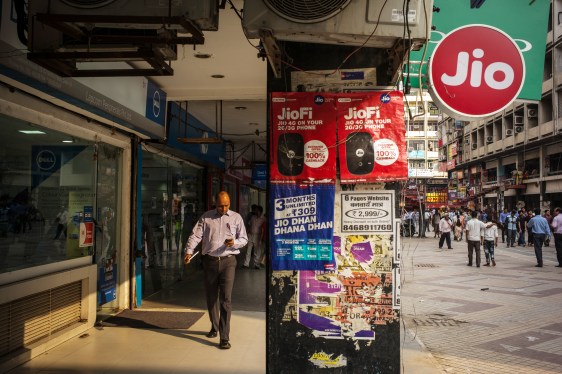VPN Apps Pulled from India’s App Stores After Government Intervention
Government Authorities Intervene in VPN Market
More than half a dozen VPN apps, including Cloudflare’s widely used 1.1.1.1, have been removed from India’s Apple App Store and Google Play Store following intervention from government authorities, according to a report by TechCrunch.
Indian Ministry of Home Affairs Issues Removal Orders
The Indian Ministry of Home Affairs issued removal orders for the apps, as per a document reviewed by TechCrunch and a disclosure made by Google to Lumen, Harvard University’s database that tracks government takedown requests globally.
Affected Apps Include Hide.me and PrivadoVPN
Among the affected apps are Hide.me and PrivadoVPN. In a communication to one of the affected developers, seen by TechCrunch, Apple cited a ‘demand’ from the Indian Cyber Crime Coordination Centre, part of the Ministry of Home Affairs, which deemed the developer’s content to contravene Indian law.
First Significant Implementation of India’s 2022 Regulatory Framework
This enforcement action marks the first significant implementation of India’s 2022 regulatory framework governing VPN apps. The rules mandate that VPN providers and cloud service operators maintain comprehensive records of their customers, including names, addresses, IP addresses, and transaction histories, for a five-year period.
Stricter Requirements Prompt Industry Pushback
The stringent requirements prompted pushback from major industry players. Leading brands like NordVPN, ExpressVPN, Surfshark, and Proton VPN voiced significant reservations about the rules, with several announcing plans to withdraw their server infrastructure from India.
Industry Players Continue to Operate in India Despite Withdrawal Plans
NordVPN, ExpressVPN, and Surfshark continue to maintain services for Indian customers, though they have stopped marketing their apps in the country. The move is seen as a compromise between complying with local regulations and maintaining operations in the region.
Concerns Raised Over Impact on User Privacy
The recent developments have raised concerns about the impact of stricter regulations on user privacy. Industry experts argue that such requirements could potentially infringe upon users’ right to online anonymity, which is a fundamental aspect of VPN services.
India’s Regulatory Framework: A Complex Landscape
India’s regulatory framework for VPNs has become increasingly complex over the past few years. The country introduced its first set of rules governing VPN providers in 2018, requiring them to maintain records of their customers’ activities. However, it was only last year that the government issued stricter guidelines, mandating a five-year retention period for customer data.
Global Implications: A Growing Trend of Regulation
The Indian government’s move is part of a growing trend of regulation in the VPN industry worldwide. Several countries have introduced laws and regulations aimed at curbing online anonymity and imposing stricter requirements on VPN providers.
A Comparison of Regulatory Frameworks Across Countries
- United States: The US has introduced several bills aimed at regulating VPNs, including the "Unlocking Consumer Choice and Wireless Competition Act" (2018). While these bills have not yet become law, they demonstrate a growing trend towards regulation in the industry.
- European Union: The EU has implemented stricter regulations on VPN providers under its General Data Protection Regulation (GDPR) framework. This requires VPN providers to maintain detailed records of their customers’ activities and notify them in case of any data breaches.
- Australia: Australia has introduced laws requiring VPN providers to disclose their ownership structure and encryption methods, among other requirements.
Industry Reaction: Mixed Responses to Indian Government’s Move
The industry reaction to the Indian government’s move has been mixed. Some VPN providers have welcomed the new regulations as a necessary step towards ensuring user safety and security.
A Closer Look at Industry Reactions
- Supportive Voices: NordVPN, ExpressVPN, and Surfshark continue to operate in India despite announcing plans to withdraw their server infrastructure from the country.
- Opposition Voices: Cloudflare has expressed concerns over the strict requirements imposed by the Indian government. The company believes that such regulations could potentially infringe upon users’ right to online anonymity.
Conclusion
The recent developments in India’s VPN market have raised significant concerns about user privacy and data security. While industry players continue to operate in the region, the stricter regulatory framework has prompted a mixed reaction from VPN providers worldwide.
Recommendations for Future Development
- Global Cooperation: Industry stakeholders should engage in global cooperation to develop a standardized set of regulations governing VPNs.
- Transparency: VPN providers must prioritize transparency in their operations and customer data handling practices.
- User Education: Users must be educated about the importance of online anonymity and security.
By understanding the complexities surrounding India’s regulatory framework for VPNs, industry players can adapt to these changes and ensure compliance while maintaining their services.



